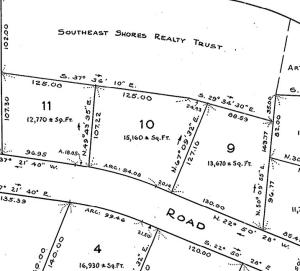School Committee and district think next steps for IB Program
An outside consultant hired by the school district completed an evaluation of its International Baccalaureate Diploma Program and found it in need of improvement, highlighting challenges with curriculum planning, class scheduling, inaccessibility and finances.
International Baccalaureate is a global education program that “enables students to direct their own learning pathway and develop the skills and confidence they need to thrive,” according to the program’s website. In Wareham, both the high school and middle school offer the International Baccalaureate Program.
The high school applied for candidacy for the program in 2015 and the program was officially introduced in 2017. Since then, five students have graduated with International Baccalaureate diplomas.
Massachusetts Department of Elementary and Secondary Education Consultant Elise Frangos presented three options for the district to consider for the program’s next steps at a School Committee meeting Thursday, Jan. 18. The district does not have to choose any of the options presented.
Option one would keep the program exactly as it exists, but with minor tweaks, including expanding the opportunities for more students, promoting the use of 21st century tools, holding interactive parent nights, monitoring progress and creating a “pre-IB pathway” for eighth and ninth graders.
The second option Frangos provided was to phase out the program. This would allow those currently enrolled in the program to obtain their degree, but would no longer be a program offered at the school following their graduation.
Frangos said part of this option would be to celebrate the gains of the program and put more emphasis on Advanced Placement and Dual Enrollment messaging.
The third option would completely revamp the program by implementing a one-year reset. This would include setting measurable benchmarks, bringing all IB staff to the high school building, emphasizing professional development, enhancing program messaging and eliminating barriers for students, according to Frangos.
Frangos’ recommendations were formulated from interviews with students and staff, classroom observations, a focus group, documentation review and a parent survey.
Feedback from the assessment reflected a mix of strengths and weaknesses in the program.
Some of its bigger effects for the high schoolers includes scheduling challenges given that it is a two-year program, the cost to maintain it and the reality that “very few [diploma] students graduate,” according to Frangos.
Students said while they love the program for its class sizes, core assignments and ability to make global connections, they are unsatisfied with IB messaging and delivery of program news. Some students shared how they weren’t completely aware of the program until the end of their junior year when it was too late to obtain the diploma.
Staff voiced their desire for more professional development opportunities that include discussion. They also highlighted the challenges in building curriculums with no model and their need for data that can help identify how students are doing, according to Frangos.
She added some staff believe Wareham is going through an “initiative overload.”
Middle school staff were happy with their curriculum documentation and appreciated the ability to make interdisciplinary connections, according to Frangos. However, the staff said there were too many buzzwords and acronyms and they also desired the ability to connect with the high school teachers to avoid repeated curriculum.
Administrators worry the program is taking resources from other learning opportunities that would benefit students and that IB isn’t “for all” as the maxim goes.
Efforts to emphasize the “for all” aspect of the program have been made in the past such as with the inclusive pilot class, IB Language and Literature, which ran for the first time this past fall. The class consisted of 20 students, 10 of which were on Individualized Education Plans.
Frangos said outside forces may have also affected the program in recent years, including the Covid pandemic, lack of support and funding, and inadequate marketing.
No one at the meeting spoke in favor of any particular option.
School Committee member Geoff Swett spoke highly of the program's benefit to students.
Swett said, “First of all, I choose none of your three options.”
“I have lots of concerns about not IB as a concept, but how we have implemented it,” he added.
As coach of the tennis team, Swett said he ends up talking to his athletes about more than just the sport. Some of the conversations they have had revolved around artificial intelligence.
“I told them, ‘In the future, it's not going to matter what you know. It's going to matter what you do with what you know,’” he said.
Swett said he believes artificial intelligence programs could pass Advanced Placement exams. However, he is uncertain it would pass an IB exam: “That's what makes, to me, IB particularly valuable — because its goals are a little different than AP.”
School Committee member Apryl Rossi said the program benefited her son who is now in his freshman year of college.
She said her son is on the autism spectrum and has struggled with executive functioning. This made taking Advanced Placement courses challenging while IB courses were better suited for his learning style. In addition, he has found his college courses to be structured more similarly to IB courses than to his other courses in high school.
“If we have the the makings — the foundation — to allow this sort of ‘out of the box free thinking,’ stimulating students to engage in things that are passionate to them and tying it back into their learning — that is 21st century learning in my opinion,” Rossi said.
She added, “I think it would be a shame to not take some of the improvements or the information that you provided.”



































